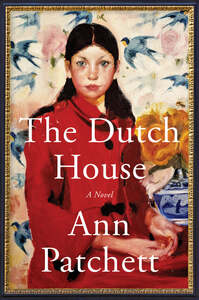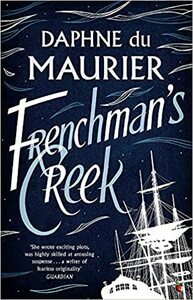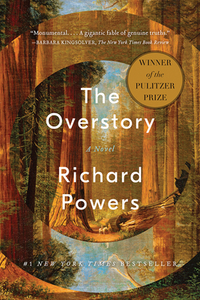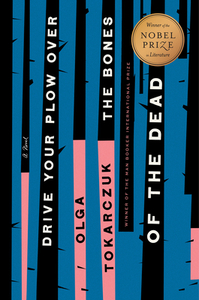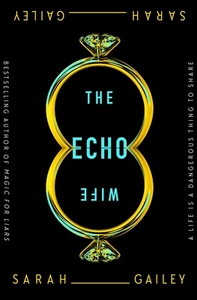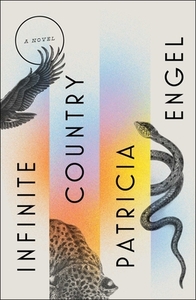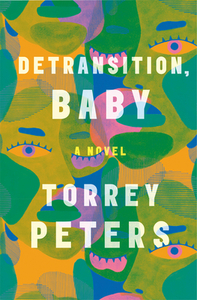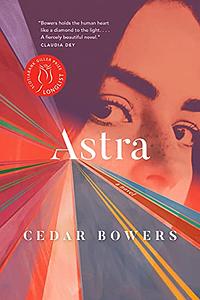Take a photo of a barcode or cover
stalkingkafka's Reviews (279)
This book leaves you wondering if anyone can ever really and truly know another person at all.
I picked up this book on the recommendation of Rick MacDonnell https://www.goodreads.com/user/show/5697316-rick because it sounded unusual to me. Astra’s story is told from the perspective of other people in her life including: her father Raymond, her son Hugo, her grandmother Doris, husband Nick, the father of her son Dom, among several other characters.
The novel begins with Raymond’s point of view at the beginning of Astra’s life and the story weaves its way through 10 chapters all written from the outside view of the people who know her up to her late adulthood. Astra is raised (if we can call it that) on a farm/commune in British Columbia called Celestial. As a child, she roams the property and neighbouring farms without much guidance or supervision. She is told that she is a child “of the cosmos” and learns to make life decisions by rolling a decahedron. She continues this superstitious decision-making practice a surprising number of times throughout her life. At the most dangerous point of her childhood, she is attacked by a wild animal that leaves her with scars on her face. Astra’s early life circumstance informs her adulthood, but we never come to learn how it affected her first-hand. If I could meet with her face to face, I would have so many questions for Astra.
Due to the narrative structure, it is difficult to feel like you ever really know Astra. Her life as told by the other characters only lets the reader understand her by degrees. It was surprising to me how little regard the other characters had for her. They were lacking in empathy and perspective and didn’t seem to see Astra as a whole person. They were unable to see beyond their own projections or alternatively what they wanted from her. Ultimately, it’s hard to know why she does what she does because we never get to be in her head or hear her voice until the very end of the novel in the last chapter. At that, many questions remain.
Unlike anything I have read before, Astra has left me with a lot to consider. In some ways that made it interesting, but it also makes it hard to describe. In the end, the structure made it tough to keep up with the narrative because with the beginning of each chapter, you had to reorient yourself to a new voice. Ultimately, though, I can see how it has stayed with me by demanding that I consider how I am in relation to other people, how they perceive me and how impossible it is to be truly known by them.
I picked up this book on the recommendation of Rick MacDonnell https://www.goodreads.com/user/show/5697316-rick because it sounded unusual to me. Astra’s story is told from the perspective of other people in her life including: her father Raymond, her son Hugo, her grandmother Doris, husband Nick, the father of her son Dom, among several other characters.
The novel begins with Raymond’s point of view at the beginning of Astra’s life and the story weaves its way through 10 chapters all written from the outside view of the people who know her up to her late adulthood. Astra is raised (if we can call it that) on a farm/commune in British Columbia called Celestial. As a child, she roams the property and neighbouring farms without much guidance or supervision. She is told that she is a child “of the cosmos” and learns to make life decisions by rolling a decahedron. She continues this superstitious decision-making practice a surprising number of times throughout her life. At the most dangerous point of her childhood, she is attacked by a wild animal that leaves her with scars on her face. Astra’s early life circumstance informs her adulthood, but we never come to learn how it affected her first-hand. If I could meet with her face to face, I would have so many questions for Astra.
Due to the narrative structure, it is difficult to feel like you ever really know Astra. Her life as told by the other characters only lets the reader understand her by degrees. It was surprising to me how little regard the other characters had for her. They were lacking in empathy and perspective and didn’t seem to see Astra as a whole person. They were unable to see beyond their own projections or alternatively what they wanted from her. Ultimately, it’s hard to know why she does what she does because we never get to be in her head or hear her voice until the very end of the novel in the last chapter. At that, many questions remain.
Unlike anything I have read before, Astra has left me with a lot to consider. In some ways that made it interesting, but it also makes it hard to describe. In the end, the structure made it tough to keep up with the narrative because with the beginning of each chapter, you had to reorient yourself to a new voice. Ultimately, though, I can see how it has stayed with me by demanding that I consider how I am in relation to other people, how they perceive me and how impossible it is to be truly known by them.

